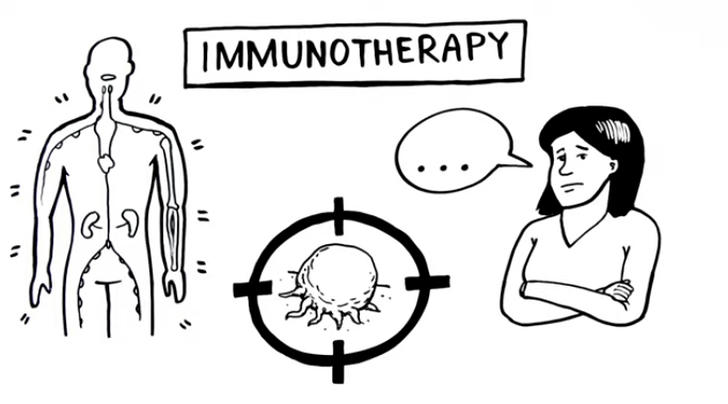Unlocking Immunotherapy: How to Determine If This Advanced Treatment Can Help You
Immunotherapy harnesses the body’s immune system to fight diseases like cancer. Recent global breakthroughs highlight its power and limitations. This article explores who benefits most and how to assess if immunotherapy suits your condition.

I. Understanding Immunotherapy: Mechanisms and Types
🔎 What Is Immunotherapy?
Immunotherapy is a medical approach that uses the body’s own defense system to recognize and destroy disease cells, especially cancers. Over recent years, it has become a game-changer in modern medicine, offering hope for cases not responding to traditional treatments.
🔬 Main Types of Immunotherapy
- Checkpoint Inhibitors: Help the immune system identify and attack cancer cells more effectively.
- CAR-T Cell Therapy: Involves genetically modifying a patient’s immune cells to target cancer aggressively.
- Monoclonal Antibodies: Laboratory-made proteins that block or mark cancer cells for destruction.
- Cancer Vaccines: Stimulate the immune system to fight existing cancer or prevent its return.
II. Global Research Advances and Breakthroughs in Immunotherapy
📊 Scientific Progress in the U.S. & Worldwide
North America currently leads the immunotherapy market, accounting for 41% of global revenue, fueled by advanced healthcare systems and robust research funding. The latest innovation includes AI-driven biomarker discovery and customized gene analysis, pushing immunotherapy to become more precise and effective. In the past year, collaboration between leading pharma companies led to new drugs for treating blood cancers and difficult tumors.
😁 Personalized Medicine on the Rise
Genetic profiling and fine-tuned therapies are transforming outcomes—patients get tailor-made treatment plans, which translates to improved survival rates and quality of life, especially in tough-to-treat cancers.
III. Benefits and Challenges of Immunotherapy
👌 Key Advantages
- Precision: Targets specific cancer or disease cells with lower risk to healthy tissue.
- Durability: Some immunotherapies yield longer-lasting responses than chemotherapy.
- Reduced Side Effects: Patient experiences tend to involve fewer severe symptoms than with conventional treatments.
⚠️ Main Challenges
- High Cost: The complex development makes therapies expensive, limiting broad access.
- Response Variability: Not all patients benefit, and success rates depend on cancer type and genetics.
- Side Effects: Immune-related adverse events can occur and require expert management.
IV. Diseases and Cancers Addressed by Immunotherapy
🩺 Which Conditions Respond Best?
Immunotherapy currently shines in cancers such as lung cancer (holding the largest application share), melanoma, and lymphomas. More recently, its use is expanding into breast, colorectal, ovarian, and even certain head-and-neck cancers. Outside cancer, it is being studied for autoimmune diseases and chronic infections, showing promise in early trials.
| Disease Type | Immunotherapy Action | Applicable Stage | Survival Impact | Notes/Suggestions |
|---|---|---|---|---|
| Lung Cancer | PD-1/PD-L1 inhibitors boost immune attack | Advanced/metastatic | Significantly extends survival (better for high PD-L1) | Requires personalized treatment; monitor immune-related side effects |
| Melanoma | Immune checkpoint inhibitors activate response | Advanced (refractory cases) | Improves survival and PFS | Assess suitability; watch for immune-related adverse events |
| Lymphoma | T-cell activation enhances efficacy | Relapsed/refractory | Increases survival, slows progression | Combination with chemotherapy improves outcomes |
| Breast Cancer | Delays progression (esp. HER2+) | Mainly advanced, some early | Significant survival gain in subsets | Subtype-dependent (e.g., HER2, ER/PR) selection |
| Colorectal Cancer | PD-1/PD-L1 inhibitors + chemotherapy | Advanced/metastatic | Survival improvement | Preferred for high-risk patients |
| Autoimmune Diseases | Suppresses aberrant immune reactions | Treatment-resistant/severe | Symptom relief, some remission | Strict indication-based use; monitor adverse reactions closely |
V. How to Determine If You Are a Candidate for Immunotherapy
🧪 Biomarker Testing & Genetic Profiling
To identify the patients most likely to benefit, U.S. clinics rely on advanced lab tests:
- Biomarker Analysis: Looks for specific proteins or mutations in tumors.
- Genetic Profiling: Assesses DNA for traits making a therapy effective.
🏥 Consulting the Right Experts
Specialist centers—often major hospitals and oncology clinics—can provide thorough eligibility assessments. Key indicators include previous treatment responses, cancer stage, and general health status.
VI. Inspiring Success Stories of Immunotherapy in Practice
🌟 Case Example: Rewriting the Odds
A recent story from Texas: A patient with late-stage lung cancer, initially given months to live, responded astonishingly well to checkpoint inhibitor therapy. Two years on, this individual is enjoying a high-quality life—working, traveling, and staying active. Similar stories are emerging across the U.S., particularly in specialized cancer centers, inspiring hope and outlining what’s possible when the right match is made.
Takeaway:
📢 Immunotherapy is transforming healthcare by offering new hope where traditional treatments fall short. Its best results come when tailored to the individual, guided by the latest testing and expert consultation. If considering this advanced treatment, start by having a conversation with a specialist and ask about the potential benefits, risks, and eligibility—your journey to better health may begin with a single informed step.
